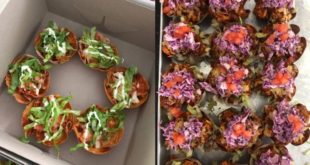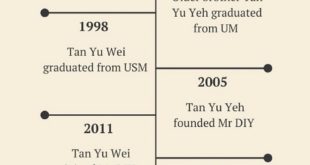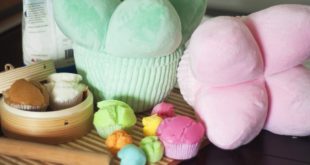In 1985, the then-15-year-old Tan Kim Siong dropped out of school to work full-time in a hawker stall.
Since age 13, he had been helping his grandmother at her Teochew fishball noodles store, while also working as an assistant for other hawker stalls.
These stints helped him score a full-time job cooking at a fishball noodle store in Bukit Batok in mid-1980s.
In 1995, he started his own business with a rental stall in the hawker centre outside the former National Library, which signals the beginnings of Fei Siong Group.
The stall turned out to be a lucrative business, and he quickly opened another outlet in Woodlands the following year.
In the next five years, he opened about 10 outlets, roping in his brothers Tan Kim Beng and Tan Kim Leng into the business.
49-year-old Kim Beng had dropped out of primary school, while 44-year-old Kim Leng studied at Ngee Ann Polytechnic before he decided to drop out to join Fei Siong Group.
Together, the Kim brothers continually expanded into various different brands and business models, turning Fei Siong Group into the successful F&B empire it is today.
Nearly 15 Brands Under Its Helm

From food stalls in coffee shops and hawker centres, Fei Siong Group managed to expand to managing food outlets, specialty shops and food courts.
Some of the brands under the F&B empire include EAT, Encik Tan and Ci Yuan Hawker Centre.

The group manages a total of 157 outlets across Singapore, and hires over 1,500 staff.
According to an interview with The Straits Times, the group’s “biggest breakthrough” came during the launch of the 7,000 sq ft Malaysia Boleh! in 2012.
Five years after it opened to much fanfare, the food court expanded to occupy double the space, with an additional 15 stalls.

The latest addition to Fei Siong Group’s repertoire of brands is Boleh Boleh — Singapore’s biggest pork-free food court.
Located at Clementi Mall, the new food court features 28 stalls which range from Petaling Street Famous Claypot Chicken Rice to Penang Road’s Famous Chendol.
Giving Back To Society

Beyond running Fei Siong Group, the three brothers also routinely give back to society.
When taxi drivers were badly hit by the circuit breaker last year, the Group announced a tie-up with NTUC and SMRT Taxis to provide free food delivery services.
Under the arrangement, SMRT taxi drivers ferried Fei Siong delivery assistants around, for a fixed rate of S$ 20 per hour. The drivers were co-paid by Fei Siong and SMRT Taxis.
The group also routinely sponsors community initiatives. Last December, they donated S$ 5,000 worth of food vouchers to about 140 families from PPIS (Singapore Muslim Women’s Association) Student Care Centre.
Furthermore, in 2015, Fei Siong launched an entrepreneurship programme aimed at preserving local hawker food among the younger generation.
Under the programme, participants were trained to be hawkers with a monthly salary of S$ 3,000 for the first three months, before they started their own stalls.
According to a report by The New Paper, the programme was so well-received that it had to be suspended due to the overwhelming response.
Succeeding Despite Tough Competition
It’s no secret that competition in Singapore’s F&B scene is extremely tough, as consumers have a huge variety of choice wherever they go.
Throughout their journey, Fei Siong Group has also seen some setbacks, like the demise of its Chinese restaurant Royal London Duck and Spanish eatery La Cala.
Despite that, Fei Siong Group has managed to successfully carve a niche for itself in the local F&B scene.
For the past 25 years, the business managed to grow from a modest fishball noodle stall to a F&B company that owns close to 15 brands.
Last year, the group made nearly S$ 150 million in revenue.
You must be hungry and not afraid of hard work. You must also treat people well. My staff is my family.
Managing Director of Fei Siong Group, Tan Kim Siong in an interview with The Straits Times
Featured Image Credit: PressReader / Capitaland



